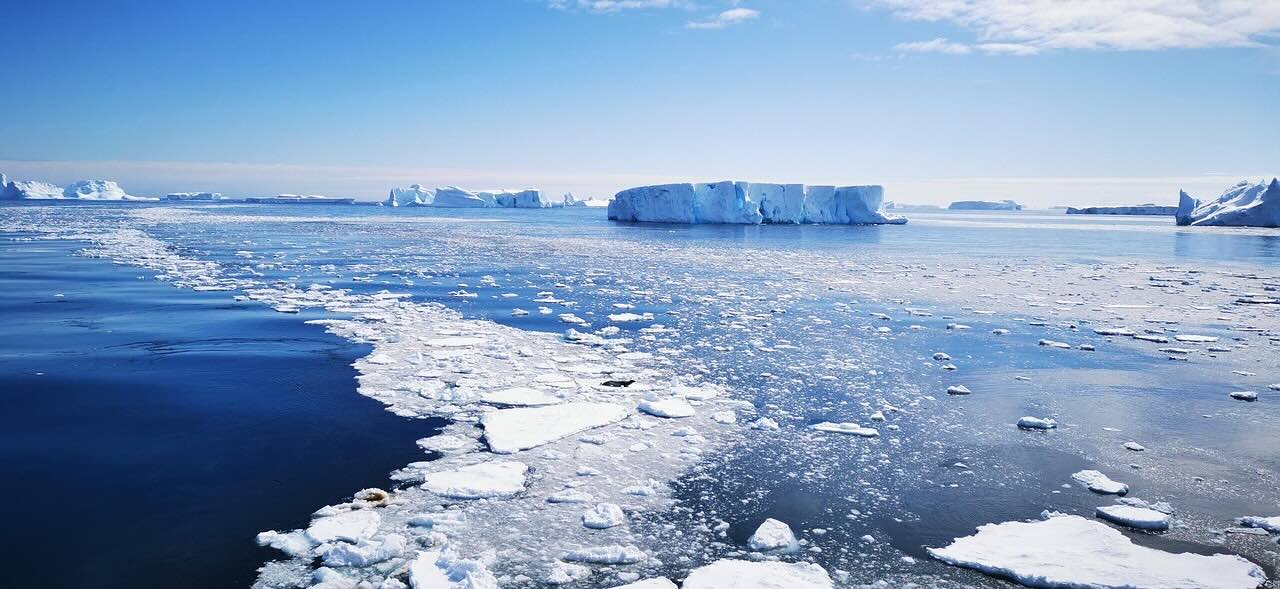A Critical Ocean Current System Is Slowing: Consequences For The United States

Table of Contents
The Role of the AMOC in US Climate and Weather
The AMOC acts like a giant conveyor belt, transporting warm water from the tropics northward along the eastern coast of North America. This massive movement of water, driven by differences in temperature and salinity, is the engine behind the Gulf Stream, a powerful current that significantly influences the climate of the eastern United States. The AMOC's function is multifaceted and crucial to maintaining a stable climate:
- Influence on Regional Precipitation Patterns: The AMOC significantly impacts precipitation across the US. A weakening AMOC could lead to increased rainfall in the Northeast and potentially exacerbate droughts in the Southeast, impacting agriculture and water resources.
- Impact on Hurricane Intensity and Frequency: The warm waters transported by the AMOC fuel hurricanes. Changes in the AMOC's strength could alter the intensity and frequency of hurricanes impacting the Atlantic coast.
- Moderation of Winter Temperatures in the Eastern US: The Gulf Stream, a major component of the AMOC, brings warm water to the eastern US coastline, moderating winter temperatures. A slowing AMOC could lead to significantly colder winters in these regions.
- Role in Maintaining Marine Ecosystems Supporting Fisheries: The AMOC is essential for maintaining the health and productivity of marine ecosystems that support valuable fisheries along the eastern seaboard. Changes in ocean temperature and currents could negatively impact fish populations and the livelihoods of those dependent on them.
Potential Consequences of a Slowing AMOC for the US
A slowing AMOC poses a wide range of threats to the United States, with potential impacts varying by region. The consequences could be severe and far-reaching:
- Sea Level Rise Along the Eastern Seaboard: A weakened AMOC could contribute to accelerated sea level rise along the eastern seaboard, exacerbating coastal erosion and threatening coastal communities and infrastructure. This would necessitate costly adaptation measures and potentially lead to displacement of populations.
- Increased Frequency and Intensity of Extreme Weather Events: Changes in the AMOC could lead to more frequent and intense extreme weather events, including heatwaves, cold snaps, and storms. This increased variability could severely impact agriculture, infrastructure, and public health.
- Disruptions to Fisheries and Marine Ecosystems: Alterations in ocean temperature and currents could disrupt marine ecosystems, impacting the abundance and distribution of fish and other marine life. This could have serious consequences for the fishing industry and food security.
- Changes in Agricultural Yields: Altered precipitation patterns resulting from a slowing AMOC could significantly impact agricultural yields across the US, leading to food shortages and economic instability.
The Scientific Evidence for AMOC Slowdown
Scientists utilize several methods to monitor the AMOC and detect changes in its strength. The evidence suggests a concerning slowdown:
- Analysis of Ocean Temperature and Salinity Data: Researchers analyze long-term data sets of ocean temperature and salinity to track changes in the AMOC's strength. These measurements reveal crucial information about the water's density and movement.
- Satellite Observations of Ocean Currents: Satellites equipped with advanced sensors provide valuable data on surface ocean currents, offering a broader perspective on the AMOC's behavior.
- Computer Modeling and Simulations of Climate Change Impacts: Sophisticated climate models help scientists simulate the impact of various factors, including climate change, on the AMOC, predicting future changes.
- Historical Data Analysis Revealing Long-Term Trends: Examining historical records, including proxy data from sediment cores and ice cores, provides insights into the AMOC's behavior over centuries, helping to establish long-term trends.
The Link Between Climate Change and AMOC Slowdown
The scientific consensus points towards a strong link between climate change and the weakening of the AMOC. Several mechanisms are at play:
- Melting of Greenland Ice Sheet Introducing Freshwater into the North Atlantic: The melting of the Greenland ice sheet introduces large amounts of freshwater into the North Atlantic, disrupting the delicate balance of salinity that drives the AMOC. This influx of less dense water can weaken the overturning circulation.
- Increased Atmospheric CO2 Levels Influencing Ocean Temperatures and Circulation Patterns: Increased atmospheric CO2 levels contribute to global warming, causing ocean warming and changes in ocean circulation patterns, impacting the AMOC's strength.
- Warming of the Arctic Impacting the AMOC’s Thermohaline Circulation: Arctic warming is impacting the thermohaline circulation—the density-driven component of the AMOC—potentially further weakening the current.
Conclusion
The slowing of the Atlantic Meridional Overturning Circulation (AMOC) presents a serious threat to the United States, with potentially devastating consequences for our climate, economy, and environment. The scientific evidence strongly suggests a link between climate change and AMOC slowdown, highlighting the urgency of addressing global warming. Understanding the potential impacts of a weakened AMOC is crucial for developing effective adaptation and mitigation strategies. We need to take immediate action to reduce greenhouse gas emissions and protect ourselves from the far-reaching consequences of this critical ocean current system's decline. Learn more about the Atlantic Meridional Overturning Circulation (AMOC) and its impact on the United States and take action today to mitigate climate change.

Featured Posts
-
 Ezra Furman Billy Nomates And Damiano David This Weeks Top Albums
May 18, 2025
Ezra Furman Billy Nomates And Damiano David This Weeks Top Albums
May 18, 2025 -
 Selena Gomezs Allegations Did She Just Send Taylor Swift A Wake Up Call About Blake Lively
May 18, 2025
Selena Gomezs Allegations Did She Just Send Taylor Swift A Wake Up Call About Blake Lively
May 18, 2025 -
 Medicaid Cuts Fuel Republican Infighting
May 18, 2025
Medicaid Cuts Fuel Republican Infighting
May 18, 2025 -
 Why Middle Managers Are Crucial For Company Success And Employee Growth
May 18, 2025
Why Middle Managers Are Crucial For Company Success And Employee Growth
May 18, 2025 -
 Chinas Impact On Bmw And Porsche Sales A Deeper Look
May 18, 2025
Chinas Impact On Bmw And Porsche Sales A Deeper Look
May 18, 2025
Latest Posts
-
 May 8th Mlb Dfs Expert Picks Sleepers And Players To Avoid
May 18, 2025
May 8th Mlb Dfs Expert Picks Sleepers And Players To Avoid
May 18, 2025 -
 Another Celebrity Joins Only Fans Amanda Bynes Latest Venture
May 18, 2025
Another Celebrity Joins Only Fans Amanda Bynes Latest Venture
May 18, 2025 -
 Southwest Washington Faces Economic Uncertainty Amidst New Tariffs
May 18, 2025
Southwest Washington Faces Economic Uncertainty Amidst New Tariffs
May 18, 2025 -
 Unlocking Value Mlb Dfs Sleeper Picks For May 8th
May 18, 2025
Unlocking Value Mlb Dfs Sleeper Picks For May 8th
May 18, 2025 -
 Amanda Bynes Only Fans What We Know So Far
May 18, 2025
Amanda Bynes Only Fans What We Know So Far
May 18, 2025
